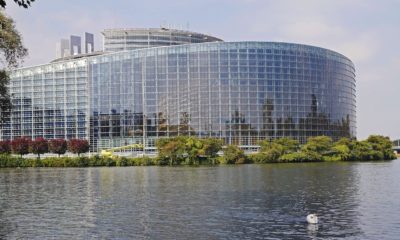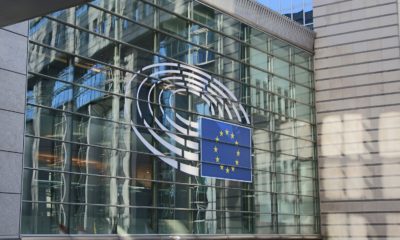Impact Investing
High Fashion Faces Reckoning: Due Diligence Becomes Mandate
Recent Milan investigations highlight that corporate social responsibility, especially in high fashion, must go beyond delegating to suppliers. Due diligence is now a structural governance duty. EU directives and legal shifts demand active monitoring of labor conditions. Sustainability is no longer optional—it’s a strategic imperative for corporate integrity, reputation, and long-term competitiveness.

With the judicial administration of Loro Piana, part of the recent investigations launched by the Milan Public Prosecutor’s Office, it is now clear that the debate on corporate social responsibility, particularly in the high fashion sector, cannot be overlooked.
In this article, Ciro Armigero, Professor of Business Management and Sustainability at the Polytechnic University of Bari and Member of the “Sustainability Reporting” Study Commission of the National Council of Chartered Accountants and Accounting Experts, emphasizes the need to move beyond a mindset of mere delegation to suppliers and recognize due diligence as a structural element of corporate governance.
This new legal approach, which has its origins in EU regulatory requirements but is also becoming a cultural aspect, marks a potentially decisive turning point. Armigero’s analysis follows.
The recent investigations conducted by the Milan Public Prosecutor’s Office represent a turning point for the management of social responsibility in production chains, particularly in the high fashion sector. This line of investigation aims to demonstrate how the protection of workers’ rights can no longer be considered a marginal issue or one that can be delegated exclusively to suppliers, but must instead be an integral part of the governance of client companies, an essential action to “remove those toxic situations,” to use the words written by prosecutor Paolo Storari.
From a legal perspective, the most significant development would concern the application of strict liability based on a form of culpable negligence in high fashion. Parent companies would not be accused of direct exploitation, but rather of failing to implement adequate monitoring and control systems in subcontractors. This paradigm marks a crucial shift from previous practices, marking the end of a complete delegation of responsibility and emphasizing the need for more rigorous and systematic due diligence throughout the supply chain.
Amid legal scrutiny and EU regulations, high fashion must embed social responsibility and supply chain oversight into core corporate governance
International literature and regulations—as evidenced by the OECD guidelines and the recent Corporate Sustainability Due Diligence Directive (CSDDD) adopted by the European Union—emphasize the obligation for companies to integrate sustainability and compliance policies into the overall management of their business and commercial relationships.
This entails adopting organizational models in the high fashion sector that include: early identification and assessment of exploitation, environmental, and social risks; definition of corrective actions; continuous monitoring; and transparent communication of the results of control activities.
Mere formal compliance—such as simply signing codes of ethics or self-certifications —gives way to the establishment of a true culture of due diligence. To this end, defining and monitoring quantitative indicators (KPIs) are essential tools for measuring the level of subcontracting, suppliers’ actual production capacity, and the actual cost-effectiveness of contracts. These are critical elements for identifying potential situations of exploitation or substandard working conditions. The application of ESRS or GRI greatly facilitates these measurements.
Despite this advanced technical regulatory framework, the recent push toward so-called ” de-bureaucratization “—embodied by the EU Omnibus packages—introduces tension into the system. While regulatory simplification and the reduction of administrative burdens are desirable, especially for SMEs, there is a real risk that such streamlining will weaken the quality and completeness of the sustainability information needed to ensure effective and transparent monitoring of production chains.
A virtuous balance therefore requires that businesses and institutions proceed with a critical and informed spirit, keeping the integrity of governance practices and the protection of human rights at the core. Due diligence in high fashion, in fact, is now recognized not only as a regulatory and moral responsibility, but as a strategic tool for protecting corporate reputation and ensuring the long-term sustainability of Made in Italy products.
Sustainability and supply chain control in high fashion cannot be considered simple regulatory requirements or formal compliance practices. They represent a managerial and strategic imperative that requires a paradigm shift, in which monitoring, transparency, and social responsibility become fundamental pillars for the success and legitimacy of businesses in the global context. This requires building reward systems, including tax incentives, capable of triggering mechanisms of competitive advantage and virtuous growth.
__
(Featured image by Tamara Bellis via Unsplash)
DISCLAIMER: This article was written by a third party contributor and does not reflect the opinion of Born2Invest, its management, staff or its associates. Please review our disclaimer for more information.
This article may include forward-looking statements. These forward-looking statements generally are identified by the words “believe,” “project,” “estimate,” “become,” “plan,” “will,” and similar expressions. These forward-looking statements involve known and unknown risks as well as uncertainties, including those discussed in the following cautionary statements and elsewhere in this article and on this site. Although the Company may believe that its expectations are based on reasonable assumptions, the actual results that the Company may achieve may differ materially from any forward-looking statements, which reflect the opinions of the management of the Company only as of the date hereof. Additionally, please make sure to read these important disclosures.
First published in ESG NEWS. A third-party contributor translated and adapted the article from the original. In case of discrepancy, the original will prevail.
Although we made reasonable efforts to provide accurate translations, some parts may be incorrect. Born2Invest assumes no responsibility for errors, omissions or ambiguities in the translations provided on this website. Any person or entity relying on translated content does so at their own risk. Born2Invest is not responsible for losses caused by such reliance on the accuracy or reliability of translated information. If you wish to report an error or inaccuracy in the translation, we encourage you to contact us.

-

 Business2 weeks ago
Business2 weeks agoTopRanked.io Weekly Affiliate Digest: What’s Hot in Affiliate Marketing [Best Technology Affiliate Programs]
-

 Business6 days ago
Business6 days ago2.5 Billion People Watch Quiz Shows Every Day. Masters of Trivia (MOT) Is Letting Them Compete
-

 Crypto2 weeks ago
Crypto2 weeks agoBitcoin Steady Near $68K as ETF Outflows and Institutional Moves Shape Crypto Markets
-

 Crypto22 hours ago
Crypto22 hours agoMiddle East Tensions Shake Crypto as Bitcoin and Ethereum Slip























